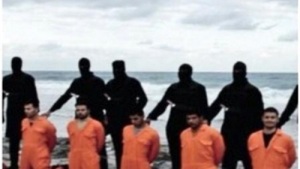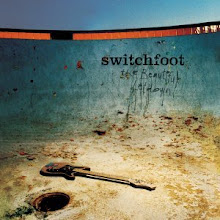The Chinese New Year traditions that focus on LOVE.
Chinese new year - a Christian perspective
The
symbols, traditions and festivals of the Chinese New Year are deeply
rooted in more than 5,000 years of human civilization, culture, mores
and beliefs. The Chinese New Year lasts for 15 days and most Chinese
households will observe traditional celebrations and practices.
Unfortunately,
some of our Chinese New Year celebrations focus too much on our
temporal earthly life and tangible success. Chinese Christians, much as
they value their culture, must seek to understand its symbolism and be
careful to avoid religious elements that do not accord with Holy
Scripture.
We must put God first, before our culture, while at
the same time honoring God in the enjoyment of our cultural heritage.
We must not contaminate our celebration with materialistic or religious
beliefs and practices that are unedifying or displeasing to God.
Chinese lunar calendar
The
Chinese generally have adopted the Western calendar since 1911, but the
lunar calendar, based on astrology and the cycles of the moon, is still
used for festive occasions such as the Chinese New Year.
Astrology
is one of China's most ancient philosophies - perhaps more than 3,000
years old. It claims to predict what will happen to people, countries,
economic trends, conflicts and much more.
Traditionally, Chinese
dating methods were cyclical - as in the method of recording years by
the twelve animal signs. Every year is assigned an animal name or 'sign'
according to a repeating cycle - Rat, Ox, Tiger, Rabbit, Dragon, Snake,
Horse, Sheep, Monkey, Rooster, Dog and Boar - so that the same animal
'sign' reappears every twelve years.
Astrology
One Chinese
legend attributes the animal signs to the semi-mythical Yellow Emperor
in 2637 BC. According to another legend, Buddha summoned all the animals
before he departed from Earth but only twelve came to bid him farewell.
As a reward, he named a year after each one in the order that they
arrived.
There is a superstitious belief that the animal ruling a
person's birth year exercises a profound influence on his or her life.
Horoscopes have developed around the animal signs, much like monthly
horoscopes in the West relating to astronomical signs. For example, a
Chinese horoscope might predict that a person born in the Year of the
Horse would be 'cheerful, popular, and love to compliment others'.
These
religious horoscopes, though popular, are dangerous superstitions. The
practice of astrology is condemned in the Bible - Isaiah 47:12-13 reads,
'Stand now with thine enchantments, and with the multitude of thy
sorceries ... Let now the astrologers, the stargazers, the monthly
prognosticators, stand up and save thee from these things that shall
come upon thee'.
Superstition
The occultic use of charts, or the worship of
celestial bodies like the moon, sun and stars to predict behaviour,
businesses, relationships or the future, is strictly forbidden in the
Bible (2 Kings 23:5-7). And that includes consulting a geomancer or feng
shui master, bomoh or shaman as well (Deuteronomy 18:10-13).
As
Christians, let us be careful not to propagate, in the name of culture,
superstitious practices that are clearly disallowed or even condemned in
the Word of God (Leviticus 19:26-31).
Greetings and Ang Pows
In
wishing one another a blessed new year, ang pows - red packets
containing money - are given to children, parents, grandparents or
others. It is good to show love and filial piety, and giving ang pows is
acceptable as long as we understand them as gestures of love and
appreciation rather than symbols of an unhealthy preoccupation with
wealth.
The colour 'red', which to many people represents gold,
is indifferent for Christians - who should not be enamoured with
materialistic prosperity, wealth and worldly success. In our Chinese New
Year greetings, it is not appropriate for Christians to wish people
Gong Xi Fa Cai, which refers to tangible or financial wealth for that
person. Wishes for peace in the new year, or eternal joy from God, are
more appropriate.
We have reason to be joyful because we are
blessed of God by his saving mercies and pardoning grace. We have Christ
as Lord and Saviour of our lives - who died for us, redeemed us and
rose from the dead, having destroyed sin and death, and brought us
everlasting life. For the Christian, only Christ is the basis of our
hopes in the new year.
Some hang paper pineapples in their homes
because in Chinese the pineapple is called ong lai, meaning 'prosperity
comes to our homes'. Others put the Chinese word for prosperity upside
down on the wall 'to bring in the prosperity'.
During Chinese New
Year also, some older folks resort to gambling with cards or mahjong,
while pictures of gold bars are displayed to symbolize prosperity and
wealth. All such practices should be avoided by Christian families
because they reflect an ungodly covetous spirit (Exodus 20:17; 1 Timothy
6:6-10).
Rather, as Deuteronomy 8:18 says, we should 'remember
the Lord [our] God: for it is he that giveth thee power to get wealth,
that he may establish his covenant which he sware unto thy fathers, as
it is this day'.
House spring cleaning
On the first day of
Chinese New Year, one superstition demands that we should not sweep the
house. Some even hide their brushes because brooms and sweeping are all
'bad luck' - they will sweep out the 'prosperity' and the 'good luck for
the year'.
Conversely, spring cleaning may signify a new
beginning, the false idea of getting rid of the 'bad luck' of the
previous year - an idea which Christians cannot accept.
Some also
say that we should only speak sweet words and eat nian gao (sweet
cakes, fried with eggs and flour). These are supposed to sweeten the
mouth of the 'kitchen god' who returns to heaven at the New Year -
according to popular folklore.
Other superstitious Chinese take
care not to break anything on the first day of the New Year because it
will bring 'bad luck' for the rest of the year.
All such superstitions are meaningless and yet dangerous, and should be completely avoided by Christians.
Lion dance and firecrackers
Another
Chinese New Year tradition is the lion and dragon dance - considered to
bring good luck because the prancing lions and dancing dragons chase
away the 'bad omen' in businesses or shops. Most, if not all, such
practices have their origins in Buddhist temples and martial arts groups
which are religious in nature.
The use of noisy fire crackers -
which by tradition is intended to ward off the evil monster nian - is a
thing of the past for Singapore, but is still widely practised in China,
Taiwan, Hong Kong and elsewhere.
It is banned in Singapore
because firecrackers have caused accidents and even fatal fires. But
even without these safety considerations the practice has unchristian
origins and Christians should avoid it.
Focus on Family
However,
we should maintain good Chinese New Year traditions - visiting families
and relatives; exchanging oranges and greetings; giving ang pows for
the children; and wishing God's blessings and peace to our friends and
neighbours. These are meaningful social and family encounters and part
of our Chinese culture.
When we wish somebody a 'blessed or
peaceful Chinese New Year', we need to pray for them and seek God's help
to live in a manner worthy of our calling as Christians.
For us,
it is a seasonal celebration of the deeper meaning of Xin Nian (new
year), representing as it does a year of new opportunities to serve and
glorify God. The God of the Bible is our Redeemer, the reason and
foundation of our confidence and joy for the new year - for 'if any man
be in Christ, he is a new creature: old things are passed away; behold,
all things are become new' (2 Corinthians 5:17).
There
are many other relevant Scriptures we can contemplate at this season.
For example, Paul advises: 'Whether therefore ye eat, or drink, or
whatsoever ye do, do all to the glory of God' (1 Corinthians 10:31). Let
us rejoice and offer praise, 'giving thanks always for all things to
God the Father in the name of our Lord Jesus Christ' (Ephesians 5:20).
Consider
also 1 Thessalonians 5:22: 'Abstain from all appearance of evil'. Let
us avoid worshiping idols by burning incense, visiting temples, worshiping ancestors, or any other form of religious or moral
compromise.
However, 'Let us not therefore judge one another any
more: but judge this rather, that no man put a stumbling-block or an
occasion to fall in his brother's way' (Romans 14:13). 'For, brethren,
ye have been called unto liberty; only use not liberty for an occasion
to the flesh, but by love serve one another' (Galatians 5:13). We are to
remember our accountability to God and to show genuine love and concern
for one another during the festive season.
May our gracious
Lord grant us true joy, peace, grace and hope in this Chinese New Year
season, as we pray and witness for Christ to our relatives and friends
with the gospel of salvation.






